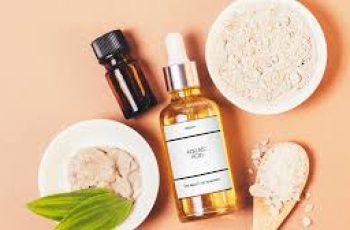
What is a cleansing oil and who should use it for?
Interestingly, before 2014, cleansing oil was primarily a product found in spas for facials. For many of us, it has become an integral part of our skin care routine. If you don’t know about cleansing oils, don’t worry, you’ve come to the right place as we’ll explain what they are, their benefits and how you should use them.
What is a cleansing oil?
Cleansing oils were originally designed to be used alone or as part of a double cleanse in the morning or evening. They help remove makeup, dirt, debris and excess oil from the skin. Although it’s an oil, you’ll find that it rinses off easily with water and doesn’t leave any residue. That’s because a clever formula allows cleansing oils to cleanse the skin and remove the “bad” oil, also known as sebum, which clogs pores and causes blemishes. Compared to other cleansers like micellar waters, gels and creams, which sometimes contain surfactants that can dry out the skin, cleansing oils are rich in moisturizing ingredients to leave the skin soft and hydrated.
How to use cleansing oil
Cleansing oils may vary slightly from brand to brand, but for most, the best way to use them is:
Pour a small amount of cleansing oil into the palm of your hand
Warm the product by rubbing your hands together
Apply the cleansing oil to your entire wet face
Gently massage the product into the skin and hard-to-reach areas, such as: B. Around the nose
Be especially careful around the eyes, using your fingers to gently remove mascara from your eyelashes
Wet your skin with more water, then remove the product from your skin in circular motions
Rinse the oil off thoroughly with your hands and water or a towel
You can then double cleanse with a face wash or other cleanser after using the cleansing oil
Pat your skin dry with a soft, clean towel
Some oils have different removal methods, so you should always read the instructions before using them.
How do cleansing oils work?
When you use a cleansing oil and massage your skin, the oils in the cleanser break down the combination of dead skin cells, dirt, bacteria, and other surface impurities. Then rinse it all off, ready for the next step in your routine.
Cleansing oils do not penetrate your pores, so there is no worry of clogging them. Instead, your skin is left clean and soft. You may find that other cleansers with oil-free formulas are sometimes too harsh on the skin, stripping away all the oil from your skin, leaving it feeling tight and uncomfortable. You may also find that removing oils completely causes your skin to produce too much sebum, making your skin appear shiny and greasy, and potentially causing blemishes. Cleansing oils maintain your skin’s natural pH balance and ensure that your skin’s protective barrier remains fully functioning, resulting in a healthy, balanced complexion.
What are the benefits of cleansing oils?
There are many benefits to using cleansing oils:
Cleansing oils can be used alone or as part of a double cleanse to keep your skin clean.
Cleansing oils break up dead skin cells, dirt, bacteria, and debris that are bound to the skin’s surface.
Cleansing oils are easily removed with water and will not clog your pores.
Cleansing oils will not dry out your skin, leaving it feeling tight and uncomfortable.
Cleansing oils leave your skin feeling soft and smooth.
Cleansing oils are rich in moisturizing and nourishing ingredients that keep the skin’s protective barrier functioning properly.
Cleansing oils are ideal for gently removing skin and eye makeup.
Cleansing oils are suitable for all skin types.
What skin types are best suited for cleansing oils?
All skin types can use cleansing oils because they rinse off easily and do not leave residue on the skin. Deciding whether to use a cleansing oil is basically a matter of personal preference.
If you have oily skin, you may be hesitant to apply oils to your skin, but as mentioned earlier, the oils in cleansers work on the skin without disrupting natural sebum production and can actually keep the skin free of excess oils that can cause blackheads, blemishes, and acne. It is recommended to check the ingredient list carefully because cleansing oils may contain varying amounts of essential oils such as almond oil, grapeseed oil, and olive oil. These can easily become a problem for blemish-prone skin. Therefore, choosing a cleansing oil that contains antioxidants such as green tea and vitamin C can help you maintain a clear complexion. If you have dry skin, you will really enjoy using a cleansing oil. The vitamin E-rich formula and powerful nourishing ingredients help to easily remove makeup while locking in moisture for a radiant, happy face.
A few things to keep in mind is to find a product that is designed to cleanse the skin. Products like baby oil and coconut oil are great for moisturizing dry skin (especially on the body and when applied to damp skin right out of the shower!). Using these oils to remove surface impurities and makeup can cause a number of skin issues when used on the face.
Another point to consider when using a cleansing oil is the amount of makeup you wear on a daily basis. If you use a full coverage and oil-control foundation, you will find that a cleansing oil can penetrate the product but it won’t remove everything. It’s best to double cleanse to ensure that your skin is free of any traces of makeup. If you’re wondering what double cleansing means, it’s simply removing makeup, dirt, and debris with a cleansing oil, and then using a face wash to cleanse your skin of any remaining makeup and impurities. Our website has a dedicated blog post to help you find the best face wash for your skin type.
We hope this answers some of your questions about cleansing oils and how to use them to get the best results for beautiful, healthy skin.


